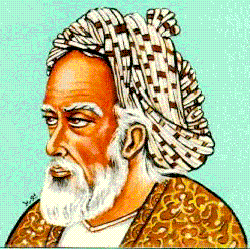‘Another voice, when I am sleeping, cries,/The flower should open with the morning skies./And a retreating whisper, as I wake-/The flower that once has blown for ever dies./’ These verses of Omar Khayyam reveal the question of human life and the mystery of birth and death. The poet’s meditative mind and epigrammatic style we can see in these verses. Rubaiyat of Omar Khayyam was translated from Persian into English by Edward Fitzgerald (1809-1883) who was an English poet and translator and ever since it became one of the internationally discussed master pieces. ‘Rubaiyat’ is the plural of ‘Rubai’ which means a poem of four lines. It was the writing style of Omar Khayyam who was born in 1050 in Persia. He was a renowned scientist, philosopher, mathematician and astronomer in his time. When I went through his works I felt the glory of mysticism, mortality of earthly life, enigma of fate, ignorance of human beings etc.
Edward Fitzgerald has done not a mere translation but a magnificent recreation of Rubaiyat that I could feel when I compare it with the other translations of the same. The beauty of Rubaiyat is again revealed in the following lines :’With them the seed of wisdom did I sow,/And with mine own hand wrought to make it grow;/And this was all the harvest that I reapd-/I came like water, and like wind I go./’ The realization of ourselves and the life on the earth will widen our mind, then we can touch the soul of the universe as we are only a part of it. Omar Khayyam embraced death in 1132 leaving his works for the world.
-P A Noushad





